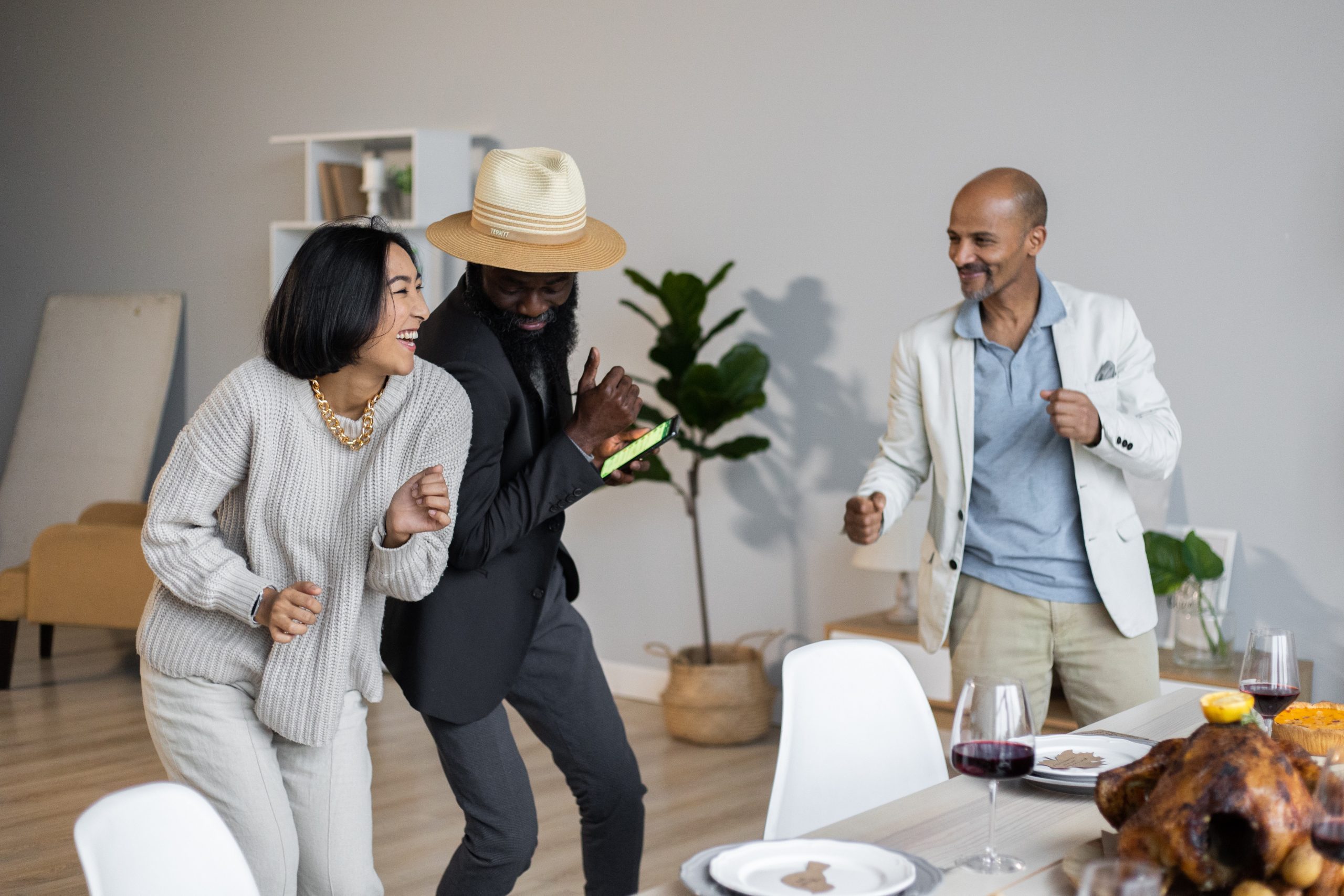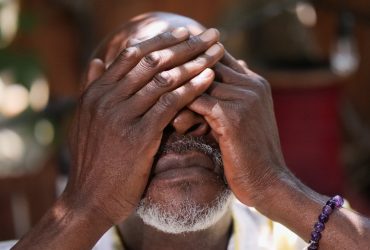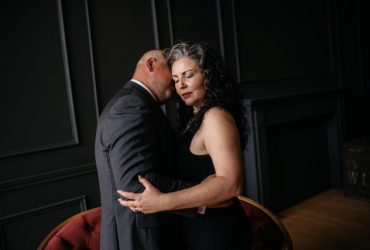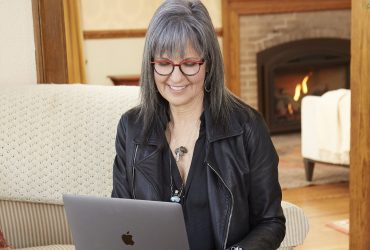Older Adults Share Priceless Lessons With Midlifers
10.07.2021
We Visited Retirement Homes To Learn What Older Adults Wish Midlifers Knew
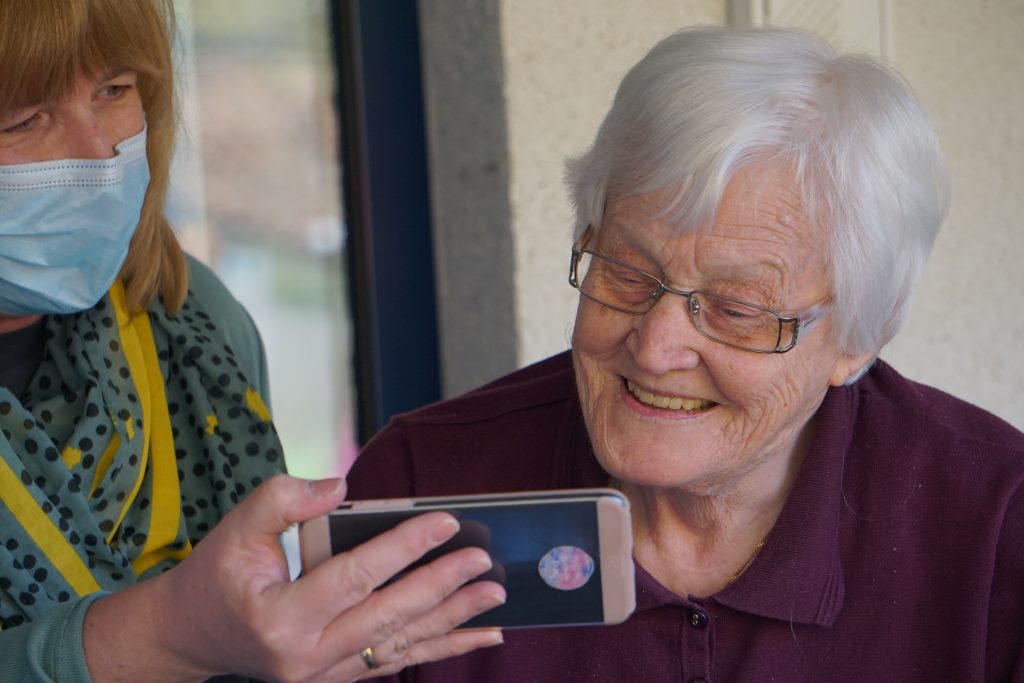
As midlifers, we are teenagers of old age. We could certainly benefit from the wisdom of our elders but are often too steeped in insecurity and stuck in our ways to take it onboard.
Team Vippi wanted to dig deeper into the advice of older folks. Too long have we passed the viewpoints of older adults as “wisdom for wisdom’s sake” when we should be putting their lived experience into practice every day.
“The great thing about getting older is that you don’t lose all the other ages you’ve been.” Madeleine L’Engle, author
After all, they might as well own a set of novelty indoor footwear that reads Been there, done that, and all I got was this pair of slippers. They’ve conquered midlife already. And whether they made the most of it or are in a position to impart their regrets and missed opportunities, they’re in a prime position to pass on what they know about journeying through life the right way or what to avoid.
So the team set out on an adventure. But instead of heading out on safari or climbing the Rockies, we set out in search of the real fountain of knowledge. That’s right – a range of retirement homes across the North East U.S. (pre-COVID, fear ye not, this project is long in the making).
The meaning within the journey of life from older adults’ perspective
Our quest was to seek the meaning within the journey of life from those who traveled it before us.
Yes, our road was long. But that’s fine considering the hundred-odd older folks we met who took much, much longer to acquire the same knowledge.
We had so much advice to sift through, from indispensable wisdom to “make sure you put white wine in a risotto” to the best way to shut down the advance of a German battalion. There was hearty laughter. There were also poignant tears, stories of longing and regret for lost loved ones, and moments of spiritual generosity we’ll never forget.
Team Vippi chose the seven nuggets of wisdom that came up most often in these endearing and often highly meandering conversations. We wanted to share them with you so that you, too, can make the most soul-enriching decisions for yourself.
1. Older adults say, Don’t worry too much.
When 100-year-olds talk, we should listen.
“If you want to test your memory, try to recall what you were worrying about one year ago today.” – E. Joseph Cossman, inventor and entrepreneur.
By far, the most common and surprising pearl of knowledge that came out of these discussions was about the futility of worry. Many of the folks we spoke to had been through grief, serious health problems, and some were of very advanced years facing up to their final few months on this beautiful planet.
Even though they’d lost many of their friends, they still maintained a calm and cheerful disposition. Why was this, we asked? “Well, you can waste an awful lot of time and energy worrying. It doesn’t make you feel good, and it sure doesn’t change anything. All it does is tire you out.”
Our newfound elderly friends told us that the fear of consequences is always far greater than what comes to pass.
When you’re worried, don’t look for answers; look for solutions. Research has found that anxiety disorders begin during childhood, peak around middle age, and tend to taper off as you approach your twilight years.
The same research also found that anxiety is most prevalent among midlifers. So more of us have an anxiety disorder – and not only that, we generally have them when they’re at their worst.
So avoid asking why is this happening to me? Instead, ask what can I do? Doing this helps in two ways:
If the answer is nothing, then the situation is out of your control, and there’s no point in worrying.
Or if the answer is a practical solution of some kind, then you have a way to get past the problem, and there’s no point in worrying.
If action is needed, it’s not worrying that will get you there, but planning and thinking tactically.
Picking up on a common theme yet? Worrying is “like spilling all your concentration outta the wheelbarrow,” one resident confided. “By the time you get to where you’re goin’, y’ain’t got none left for all the toilin’ you did.”
Solutions rely on actions. By doing, you’re breaking your worry cycle about what can and can’t be fixed – just do what you can.
Suppose your actions fix the problem. Great. But if they don’t, you either learn a powerful lesson for the next situation that arises, or there was nothing you could have done anyway. Either way, worrying is inconsequential.
2. You don’t have to hold on to everything.
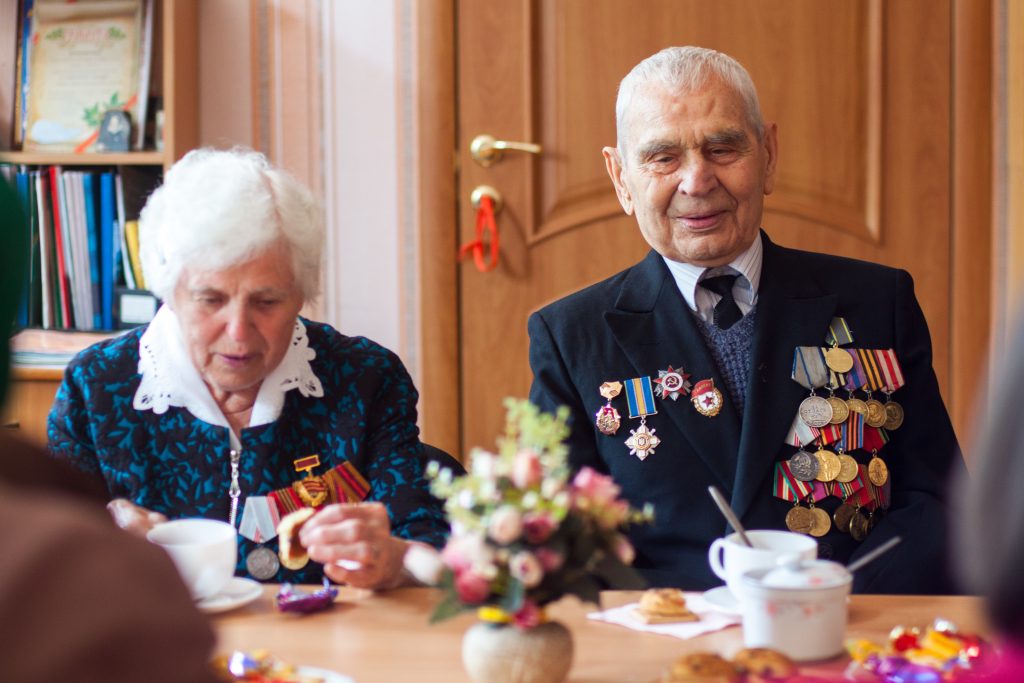
“I miss my Chuck, you know,” a quiet lady told us over a cup of tea. “But I wish I hadn’t pined after him for twenty years. I robbed myself blind of any chance to start over. I also can’t believe I spent so much time with the nasty, gossipy ladies over at bridge club when I could have been around kind people who gave a damn (if you’ll pardon my French).”
Letting go is a skill – and an important one that came up extremely often in our conversations. Many of the people we spoke to were very matter-of-fact, and a lot of their regrets weren’t centered around the lost time they wish they’d spent with people. Instead, the time spent with those who didn’t add value to the residents’ lives was the harder pill to swallow.
Some theories, such as Dunbar’s number, suggest that we can only develop relationships with 150 people at any one time (although studies dispute that it’s this easy to pin down the maximum number of people we can know).
Still, it’s just not possible to have deep, sustainable relationships with that many people. And it’s harder still to know just who’s using us for our position, resources, or connections and who loves us for the contents of our heart.
If we are deeply connected to five people throughout our lives, that’s a true bounty of love. But with so small a number, that means letting go of distracting or toxic elements. This can involve some painful moments of realization and difficult decisions – but taking those steps may be the most important thing you do.
Three main themes arose from our chats:
- Knowing what to let go. The sooner people forgave perceived wrongdoings, moved past painful events, and faced traumas head-on, the more their perspective cleared and the freer they felt.
- Knowing when to let go. Sometimes, the older folk had no idea where to turn, felt insane levels of pressure and obligation, and had a sense of complete captivity in their social circles. That, they said, was the best time to let go of people.
- Knowing who to let go. This part stings because you may not even actively dislike the people you let go – but you know they’re no good for you or that their intentions for you are not pure.
There are two ways to create a better life:
- Make an effort to build a better life.
- Remove what’s standing in the way of that better life.
A great analogy is money. People want to be rich, sure, but that doesn’t always mean working all hours of the day.
You don’t have to earn more – you can spend less, cut your subscriptions, and reduce the number of factors draining your resources. Now, you have more free time, but you can still save the same amount of money you need.
This analogy applies to other areas of your life, like relationships. Get rid of fair-weather friends or those who milk you for your value. You’ll find that their toxicity increases as your utility decreases.
It’s also important to let go of the negativity in your heart surrounding those people who detract from your life. Forgiveness is an essential part of letting go (more on this below – forgiving people was an enduring theme).
3. Older Adults say, Live in the moment.

As you age, it becomes more important to live in the moment. Every moment has the potential to become a great memory. And, as your years progress, you get fewer moments to transform into beautiful points of reflection.
“I used to deal in antiques, oddities, and rare goods,” one gentleman told us. “You wouldn’t believe the prices some rare stuff would fetch, even though it was pretty much just junk – old spoons, stamps, kitchenware, all that jazz. I guess the fact there was less of it, made it more valuable even though it would’ve been seen as garbage in the time it was made.”
He explained that this scarcity:value ratio made him think about the way time works. The less of it you have, the more precious it becomes.
“Unfortunately, most people ain’t of that mindset,” he went on. “You shouldn’t have to be in a retirement home before you start taking stock of what you got. Tell you what, though, if people started living, and I mean really living, from [Team Vippi’s] age, they’d reach their eighties so fulfilled. Gosh, I wish I’d done that in place of chasing antiques.”
Time is the one resource we can’t stockpile. Not only this, you never know when it’s going to run out. Especially as you reach old age, that day could be 10 years away, or it could be tomorrow. We spend more time worrying about what could happen in the future and being angry about what did happen in the past that we forget to happen.
So next time you have a hard day and kick back with a glass of wine, really enjoy it. Don’t knock it back while fretting about the bygone day or week. Use your time you spend sitting out in the backyard and sipping on your claret to feel the breeze on your cheeks, take in the aroma of the wine, and just be.
Consciously pausing to do this feels like you’ve stopped time and are just allowing yourself to marinate in the moment. Modern-day motivators have spun these lessons into a new-age “mindfulness” ideology – but the idea of genuinely inhabiting your experiences is far from new.
So many midlifers regret not having spent enough time with their children, for example. Being there for the milestones is all well and good, but the joy of parenthood is also in being at their games, school plays, or extracurricular activities. Missing those due to one work commitment too many can feel like a kick in the teeth.
Next time you go to a school basketball game, have a look around the stands. Many parents aren’t living the moment. They’ll be texting or chatting on the phone with business colleagues.
Their minds are elsewhere. This means that while they’re physically there for their child, they’re not there for themselves. These parents are missing those precious moments and failing to appreciate them for their gifts – don’t fall into the same trap.
Older Adults say, Practice the noble art of forgiveness
One of the residents really opened up to us. “There was one guy; I just hated his guts. We ran a bakery together, one of the best in East Boston, and he quit on me after 15 years. I saw him as a brother, and then we had to fold the whole business. He retired me involuntarily. It was a damn nightmare.”
“I held such a grudge against him for so long. And then, when we saw each other again, his wife had passed, and he was a shell of the man I knew,” he revealed. “I just felt this twang of… I guess you’d call it remorse? Regret? I don’t know, but it hurt, I’m telling you. I knew I should’ve just hung up the ill feelings and given him a call when he needed me.”
Many of the people we engaged with spoke of similar situations – decades-long hangups that served no purpose other than poisoning their souls.
Forgiveness isn’t about granting complete clemency. It’s about letting go of hangups and embracing the moment. You can’t choose how you’ve been treated – but you do, to some extent, have power over the way you feel about it.
It’s just so important, and this was reflected in how many people brought up forgiveness. It means that you refuse to allow negative experiences to become toxic in your soul. Identify what your vision of forgiveness looks like. Does it involve fully re-embracing the wrongdoer in your heart? Would you instead let them know you forgive them but not allow them to re-engage with your life?
There’s no correct answer – it’s a highly personal thing. But consider what forgiveness means to you, and carry it out. This will enable you to become emotionally healthy.
A heroine called Eva Kor, for example, is perhaps the benchmark of forgiveness. She and her twin sister, Miriam, were used as guinea pigs in horrific experiments at Auschwitz. On surviving, they returned to their native Romania to find that none of their family had survived.
She didn’t speak about the experience until the seventies but started a project to visit Auschwitz later in life alongside one of the doctors who’d conducted the experiments. Eventually, she found a Nazi doctor who was willing to meet with her about the project: Dr. Hans Munch, a doctor who she remembered featuring in a documentary alongside her.
He agreed to visit the camp with her.
Eva drafted up a letter of forgiveness to the doctor in English, a non-native language for her. When a friend was spellchecking the letter, they also tried convincing her to forgive Dr. Mengele, the man in charge of the experiments. In that moment, she realized that forgiveness was an act of empowerment and self-healing.
So, she and Dr. Munch visited Auschwitz on the 50th anniversary of its liberation with both of their families. He signed a document taking ownership of his role in the atrocities. She signed a document forgiving the Nazis. And from that moment onward, she felt a burden lift from her shoulders.
Eva passed long before we would’ve been able to speak with her – but we sure wish we’d have gotten the opportunity. We could’ve learned a thing or two.
Either way, her lessons about the nourishing power of forgiveness live on. And if she can forgive Dr. f*cking Mengele, then you can forgive your bully at college or the friend who deceived you in your past.
4. Older adults say, Health is a cornerstone – listen to your body.
“I’ve had a great life,” croaked one of the residents at a residential facility in New Jersey, “but I must have hit 300, 350 pounds in my forties. I couldn’t play with my kids, make love to my wife, dance, climb the frickin’ stairs, nothing. Now I have to be super careful because of the ol’ ticker, and I lost a few pounds. But I wish I’d taken care of myself when it counted, is all.”
This theme came up regularly. Those residents in good health were so content with the extra years that an active lifestyle had brought them and how rich and enjoyable those years had been.
And those we spoke to in worse shape expressed sincere regret that they didn’t look after the body they had.
But, surprisingly, the issue that came up just as often was emotional health: nurturing your relationships and spending real quality time with real quality people. The residents felt the art of this was getting lost.
Physical health
Bodies change.
Your metabolism slows. Your hangovers get more prolonged and more painful. You can’t drink or eat as much. Members of Team Vippi who could put away a 25-ounce steak 10 years ago can now only manage a 12-ounce one. In 10 more years, who knows what they’ll be able to eat.
Don’t try and fight Mother Nature – you have to learn to be a good child. Mother Nature doesn’t let you get your way. Sure, you can get a liposuction or lip filler if you don’t like the way you look once you hit midlife, but there’s no nip/tuck for your arteries.
Learn to listen to your body, your gut, and your instinct. You can’t do what you did 10 years ago. Your gut is the father of truth. And Father Truth teams up with Mother Nature to teach you a life lesson once in a while.
You can make a few mistakes in your twenties when it comes to your body, but you have to pay attention to your body as it slows down.
When you’re full, stop.
If you’re tired, sleep.
And when you’ve had enough to drink for the night, put a cork in it.
Move from gluttony to gourmet. Instead of eating a sh*tty half-pound burger from your nearest fast-food joint, spend the same money on a beautiful, grass-fed beef joint from your local butcher, buy some fresh, sourdough bread, and make yourself a smaller sandwich that’s ten times as delicious.
Don’t wolf your food down, either. We hate saying it, but eat… mindfully. (Ugh, we know.) Chew slowly, savor all the flavors and textures, and really think about what you’re eating.
Emotional health
Back in the day, emotional health meant developing fulfilling, beautiful relationships within a community – between a parent and child, friends, cousins, neighbors, or different couples, for example.
You need to be making your relationships as wholesome and meaningful as possible. That means letting go of the toxic or unfulfilling connection you may have (see point 2) and diving deep into those that matter.
Relationships these days are based on getting by, not getting deep.
You need to explore connections to their limit. Be there when people are sick or grieving. Open up to people about the struggles you’re facing. Be a companion when it’s not easy, as well as when it is.
Throughout their lives, older adults didn’t have an online motivational course to refer to when trying to improve their emotional health – they had only their gut instinct and relationships.
Mental health
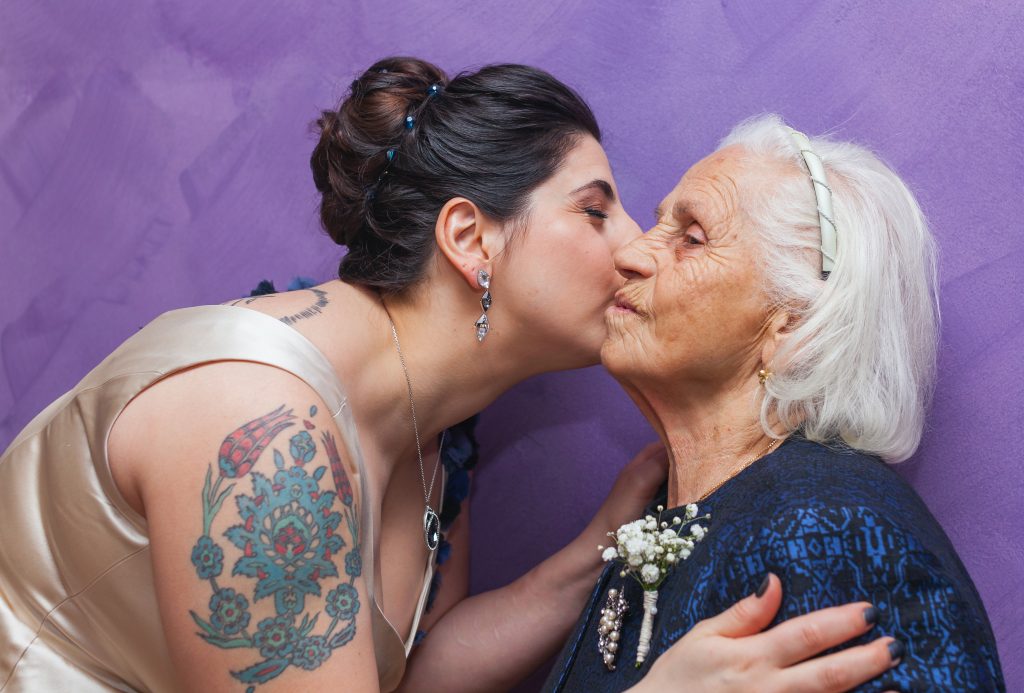
While, yes, shrinks and psychologists have made money from mental health problems for centuries now, not every bad day was labeled as a disorder when the older residents were growing up.
They rarely ever had a problem with mental health – as it was never labeled. They were never made aware of it. Now, when their grandkids are depressed, they have a tough time understanding it. There was no one to classify depression as a technical situation that required managing.
They found that through emotional health, strong relationships, and resilience, they were mentally healthy. They were surprised that mental health was an issue in the modern age, having been through a World War.
We’re not downplaying depression, anxiety, and stress. They’re real conditions that can have fatal consequences if you leave them untreated. The challenge comes when you start to apply disorders and labels to every concern you have.
5. Older adults say, Stop confusing yourself.
“I’ve had five marriages,” laughed one resident, “and I thought each one would be better than the last. Actually, I was just a jackass and screwed up the first one chasing tail. I’ve outlived all of my partners, and I don’t have anyone now. It’s pretty lonely. The one thing I’d change over everything else is my ability to see what I had in the first place.”
Another super common lesson from speaking to these older adults (and especially the lothario above) was that they often confused themselves, hunting for “better things” when the relationship or job that would make them happy was right under their nose.
For example, many of those we interviewed said that their craft and skills helped them make a decent living and provide comfortable lives for their families. Many of them also had multiple degrees and doctorates, which they said hadn’t helped them earn more money.
Again, this boils down to being confused about priorities and the real meaning of their work. Their skills and practical, value-adding attributes always supported their careers more than academic prowess.
So:
- Stop confusing lust for love. Rebuild relationships instead of re-evaluating them.
- Stop confusing a lack of gratitude for dissatisfaction. Find meaning where you currently are, rather than embarking on an endless quest for meaning in other places or situations. There’s always someone out there who wishes they had the life you have.
- Stop confusing knowledge for know-how. They very rarely coexist in the same space. Knowledge is useless unless you acquire it for a purpose. For this reason, you’ll never find an Ivy League business studies professor on the Top 10 Rich List. It just doesn’t happen.
Nowadays, everything seems to be a meeting of emotions – jealousy, lust, and ceaseless ambition. Constant looking over your shoulder at what you wanted to be when you grew up or panicking about what you might not be in the future. The only genuine part of life is what it currently is. Focus on that, and most of your confusion will fall by the wayside.
6. Older adults say, Be careful with what you learn.
“I was the brightest academic in my college, Yale it was,” sighed one resident. “But the man next door, he had his own plumbing company and earned three times as much. Hand on heart, I wish I’d gone and become a f*cking plumber.”
We ventured out in our minibus in search of wisdom. We came to discover that many older adults don’t see wisdom and knowledge as the same thing. Learn what you can, sure, but don’t be the dumbest genius in the room. You have to use your know-how to support your people and build a life.

The vippivippi.com logo above, is a clock set to a few minutes past noon. It’s a potent symbolism of midlife. On any given day, at noon, the Sun is at its brightest. That’s exactly what midlife is – a convergence point of energy, experience, and expertise. Reaching this apex allows you to shine at your brightest. But that means putting any time wasting to one side and really doing stuff.
Team Vippi
Read a book a day and be curious, sure. But be tactical in your curiosity and skillful in how you absorb knowledge. Your input must have an output; the resources you take in have to yield a reward.
For example, you could read Mozart’s biography. We’re sure it’s interesting – he’s put a few tunes together, from what we’ve heard. But what does reading about his life add to yours? What good is inspiration if it doesn’t teach you how to do something?
Be strategic about what you absorb from your environment, materials, knowledge, and information. You should be the dumbest person at any dinner party you throw and surround yourself with people from whom you can learn practical abilities.
View knowledge as a means to an end.
7. Older adults say, Share your God-given gifts with others.
“I just loved watching my granddaughter’s dance recitals when she was growing up; those were the happiest moments of my life,” reminisced another resident. “She’s at college in another state now, but I hope she’s still dancing. What a gift.”
Everybody has a gift. We should take whatever knowledge, culture, and enrichment we can get from our environment, sure. But you have something to give too – don’t hoard it for yourself. That’s why it’s called a gift.
Some families encourage their children to share what they’ve learned with everyone else. Gifts are meant to be opened, seen, and appreciated.
One Member of Team Vippi, for example, thinks back to his childhood, where his complete lack of shyness was a gift that was always encouraged. His grandparents would hand him a joke book, and he’d read it for everyone at birthdays and special anniversaries.
The whole family and their guests would laugh, clap, and guess punchlines. Was it especially funny or surprising? Of course not. But this was a small, squeaky-voiced boy reading terrible jokes at ear-piercing volume. Everyone took home a fun memory to chuckle about on those days.
His family still talks about those moments 25 years later.
You’re probably not as cute as our friend in Team Vippi was at the age of 5, but you’ve still got gifts to share, teach, or pass on. And the reason you should is this:
If your gift can help someone live in the moment, make them feel better, or bring color to their life, it’s 100% something you should put into the world as much as you can.
Most people are worried about something else like their bills, their job, or their health – they’re never totally inhabiting the moment, which means they’re only giving a small fraction of themselves to their lives. When you share a gift with someone, you pull them back into the moment and make it unique. Sharing your natural gifts for the benefit of others is the ultimate act of philanthropy.
You’ll be part of that memory forever. And when the recipients of that gift get older, like our eager interviewees, they’ll appreciate having been able to share your gift decades after the fact.
The roundup
As our minibus trundled home across the North East, we smiled to ourselves. We’d met some fantastic characters and heard some genuinely inspiring life stories. It’s crazy what you can live through in 8 or 9 decades.
But here’s the thing: It’s also crazy what you can live through in 4 or 5 decades, too.
None of the advice was dissimilar to what we’d tell our own teenage children. It seems that when lessons pass down through generations, it’s very much just the cycle of life in motion.
It’s older folks’ way of leaving signposts as they move along life’s journey. They simply want the next generation (we midlifers) to stop for a moment, appreciate what we have, and feel less anxiety about what comes our way. Who can argue with that?.
Team Vippi dozed off that night contented, enriched, and just a little bit wiser.
We hope you felt the same after reading about it.
Article resources
Bandelow, B. (2015). Epidemiology of anxiety disorders in the 21st century. https://www.ncbi.nlm.nih.gov/pmc/articles/PMC4610617/
Dunbar, R. (n.d.). https://www.newscientist.com/definition/dunbars-number/
Lindenfors, P. (2021). ‘Dunbar’s number’ deconstructed. https://royalsocietypublishing.org/doi/10.1098/rsbl.2021.0158
Eva Kor. (n.d.). https://www.theforgivenessproject.com/stories/eva-kor/






